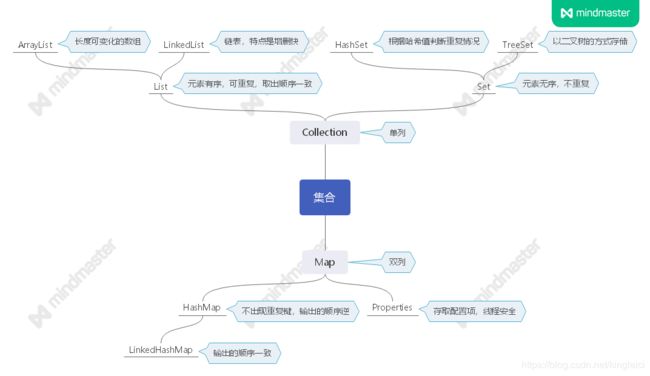- UI学习——cell的复用和自定义cell
Magnetic_h
ui学习
目录cell的复用手动(非注册)自动(注册)自定义cellcell的复用在iOS开发中,单元格复用是一种提高表格(UITableView)和集合视图(UICollectionView)滚动性能的技术。当一个UITableViewCell或UICollectionViewCell首次需要显示时,如果没有可复用的单元格,则视图会创建一个新的单元格。一旦这个单元格滚动出屏幕,它就不会被销毁。相反,它被添
- Faiss:高效相似性搜索与聚类的利器
网络·魚
大数据faiss
Faiss是一个针对大规模向量集合的相似性搜索库,由FacebookAIResearch开发。它提供了一系列高效的算法和数据结构,用于加速向量之间的相似性搜索,特别是在大规模数据集上。本文将介绍Faiss的原理、核心功能以及如何在实际项目中使用它。Faiss原理:近似最近邻搜索:Faiss的核心功能之一是近似最近邻搜索,它能够高效地在大规模数据集中找到与给定查询向量最相似的向量。这种搜索是近似的,
- 厦门自由行之第一天:
大苏子在广漂
厦门三人行之杂记出发前一天:12️28日下午15:00从广州粗发,来深圳集合!但是中间发生一个小插曲,验票时候发现车票不见了,或许也是一场恶作剧,对于不排队的人,忍不住说了一下,接下来就发现车票不见了,已经是拿在手上!不过还好,可以凭借购票订单查看到信息,所以有惊无险,顺利进站!晚上三个人一起去吃了柠檬鱼,说实话,那会,感觉美吃饱,啊哈哈!晚上回来,两个人又开始彻夜长谈,发现身边优秀的人,一大把,
- 【韩玲】领读小组2月21日打卡文集合
9ce517ee104c
【输出者】健芳【打卡素材】对财富说是Day50【作者】[澳]奥南朵【标题】让努力看得见【字数】7931建立新信念做事情失败的原因都由我们自己无意识的旧有的信念去掌控着。故步自封,没让自己去更新迭代自己的信念。建立新的信念,相信自己的财富会越来越多。2改掉坏习惯以前的懒床、刷手机、煲剧、这些都是封锁自己思想的坏习惯,以为这样就可以让自己过得充实。其实真的不是,而是带给自己一种伤害,阻碍自己努力上进的
- ArrayList 源码解析
程序猿进阶
Java基础ArrayListListjava面试性能优化架构设计idea
ArrayList是Java集合框架中的一个动态数组实现,提供了可变大小的数组功能。它继承自AbstractList并实现了List接口,是顺序容器,即元素存放的数据与放进去的顺序相同,允许放入null元素,底层通过数组实现。除该类未实现同步外,其余跟Vector大致相同。每个ArrayList都有一个容量capacity,表示底层数组的实际大小,容器内存储元素的个数不能多于当前容量。当向容器中添
- matlab delsat = setdiff(1:69,unique(Eph(30,:))); 语句含义
黄卷青灯77
matlab开发语言setdiff
这行MATLAB代码用于计算在范围1:69中不包含在Eph矩阵第30行的唯一值集合中的所有元素。具体解释如下:delsat=setdiff(1:69,unique(Eph(30,:)));解释Eph(30,:)Eph(30,:)提取矩阵Eph的第30行的所有列元素。这是一个行向量,包含了第30行的所有值。unique(Eph(30,:))unique函数返回Eph(30,:)中的唯一元素。这意味着
- JavaScript `Map` 和 `WeakMap`详细解释
跳房子的前端
JavaScript原生方法javascript前端开发语言
在JavaScript中,Map和WeakMap都是用于存储键值对的数据结构,但它们有一些关键的不同之处。MapMap是一种可以存储任意类型的键值对的集合。它保持了键值对的插入顺序,并且可以通过键快速查找对应的值。Map提供了一些非常有用的方法和属性来操作这些数据对:set(key,value):将一个键值对添加到Map中。如果键已经存在,则更新其对应的值。get(key):获取指定键的值。如果键
- 高级UI<第二十四篇>:Android中用到的矩阵常识
NoBugException
(1)定义在数学中,矩阵(Matrix)是一个按照长方阵列排列的复数或实数集合。由m×n个数aij排成的m行n列的数表称为m行n列的矩阵,简称m×n矩阵。记作:图片.png这m×n个数称为矩阵A的元素,简称为元,数aij位于矩阵A的第i行第j列,称为矩阵A的(i,j)元,以数aij为(i,j)元的矩阵可记为(aij)或(aij)m×n,m×n矩阵A也记作Amn。元素是实数的矩阵称为实矩阵,元素是复
- LeetCode github集合,附CMU大神整理笔记
Wesley@
LeetCodegithub
GithubLeetCode集合本人所有做过的题目都写在一个java项目中,同步到github中了,算是见证自己的进步。github目前同步的题目是2020-09-17日之后写的题。之前写过的题会陆续跟新到github中。目前大概400个题目Github项目链接:https://github.com/sunliancheng/leetcode_github附上一份优秀的教材整合:这是卡内基梅隆(C
- 【高阶数据结构】并查集
椿融雪
数据结构与算法数据结构并查集
文章目录一、并查集原理二、并查集实现三、并查集应用一、并查集原理在一些应用问题中,需要将n个不同的元素划分成一些不相交的集合。开始时,每个元素自成一个单元素集合,然后按一定的规律将归于同一组元素的集合合并。在此过程中要反复用到查询某一个元素归属于那个集合的运算。适合于描述这类问题的抽象数据类型称为并查集(union-findset)。比如:某公司今年校招全国总共招生10人,西安招4人,成都招3人,
- 济宁高新区“路长制”8月28日工作日志
JNSGAJGXQFJ
【工作日志】一、洸河路“路长制”工作每日战报【早高峰巡逻】凯赛中队与高新区特警早高峰巡逻【平峰治理】凯赛中队与高新区特警平峰巡逻【晚高峰巡逻】凯赛中队与高新区特警在商检岗集合晚高峰巡逻二、吴泰闸路“路长制”工作每日战报【早高峰巡逻】圣地岗和贵和岗巡逻劝导非机动车走机动车道等重点违法行为,在重点路段疏导交通。【平峰巡逻】吴泰闸中队治理乱停乱放【晚高峰巡逻】圣地岗和贵和岗巡逻劝导非机动车走机动车道等重
- Hadoop架构
henan程序媛
hadoop大数据分布式
一、案列分析1.1案例概述现在已经进入了大数据(BigData)时代,数以万计用户的互联网服务时时刻刻都在产生大量的交互,要处理的数据量实在是太大了,以传统的数据库技术等其他手段根本无法应对数据处理的实时性、有效性的需求。HDFS顺应时代出现,在解决大数据存储和计算方面有很多的优势。1.2案列前置知识点1.什么是大数据大数据是指无法在一定时间范围内用常规软件工具进行捕捉、管理和处理的大量数据集合,
- [转载] NoSQL简介
weixin_30325793
大数据数据库运维
摘自“百度百科”。NoSQL,泛指非关系型的数据库。随着互联网web2.0网站的兴起,传统的关系数据库在应付web2.0网站,特别是超大规模和高并发的SNS类型的web2.0纯动态网站已经显得力不从心,暴露了很多难以克服的问题,而非关系型的数据库则由于其本身的特点得到了非常迅速的发展。NoSQL数据库的产生就是为了解决大规模数据集合多重数据种类带来的挑战,尤其是大数据应用难题。虽然NoSQL流行语
- 匈牙利算法
Star_.
蓝桥杯算法数据结构
intn1,n2;//n1表示第一个集合中的点数,n2表示第二个集合中的点数inth[N],e[M],ne[M],idx;//邻接表存储所有边,匈牙利算法中只会用到从第一个集合指向第二个集合的边,所以这里只用存一个方向的边intmatch[N];//存储第二个集合中的每个点当前匹配的第一个集合中的点是哪个boolst[N];//表示第二个集合中的每个点是否已经被遍历过boolfind(intx){
- C# 开发教程-入门基础
天马3798
教程系列整理c#开发语言
1.C#简介、环境,程序结构2.C#基本语法,变量,控制局域,数据类型,类型转换3.C#数组、循环,Linq4.C#类,封装,方法5.C#枚举、字符串6.C#面相对象,继承,封装,多态7.C#特性、属性、反射、索引器8.C#委托,事件,集合,泛型9.C#匿名方法10.C#多线程更多:JQuery开发教程入门基础Vue开发基础入门教程Vue开发高级学习教程
- 数据结构 1
五花肉村长
数据结构算法开发语言c语言visualstudio
1.什么是数据结构数据结构(DataStructure)是计算机存储和组织数据的方式,是指相互之间存在的一种或多种特定关系的数据元的集合。2.什么是算法算法(Algorithm)就是定义良好的计算过程,他取一个或一组的值为输入,并产生出一个或一组值作为输出。简单来说算法就是一系列的计算步骤,用来将输入数据转化成输出结果。3.数据结构和算法的书籍资料学习完数据结构知识,可以去看《剑指offer》和《
- 72称体重 作者:陈瑄仪
家庭教育CEO
2019年5月1日星期三大雨昭阳区今天我们开始准备明天的比赛,教练说早上8:00叫我们到市委党校集合,爸爸很早就送我到市委党校了,我在那里等了好久,教练还没来,我就在那里跑步,跑了十几圈教练还没有来又跑几圈教练还没来,我们就觉得奇怪了,教练不会在家里睡懒觉吧,我们又跑了几圈才休息。等教练来了我们就去称重体重,第一次称,没过,我急了,教练说我超了0.3公斤,让我去跑了几圈重量才减下来,明明之前几天只
- Java集合类框架源码分析 之 RoleList源码解析 【6】
yunzhonghefei
Java集合类源码分析RoleList源码解析
该类继承于ArrayList,针对Role进行了一些扩展。其他方法和ArrayList中基本相同,源码不做针对性分析:看一下类简介:/***代表了一个roles的列表,作为方法setRoles()的参数,去创建一个关联关系,并且尝试在同一个关系中设置多个角色。*ARoleListrepresentsalistofroles(Roleobjects).Itisusedas*parameterwhen
- shp文件解析转换为geojson/wkt格式字符串
自律_平庸
前端数据库大数据
此函数用于处理上传的ZIP文件并将其转换为GeoJSON格式的字符串。具体步骤如下:验证上传文件是否为ZIP格式。创建临时目录以解压ZIP文件。解压缩ZIP文件至临时目录。查找解压后的.shp文件。如果缺少.shx或.dbf辅助文件,则创建空文件。读取Shapefile数据。将特征集合转换为GeoJSON格式。清理临时文件和资源。函数返回转换后的GeoJSON字符串。publicStringshp
- Linux命令行基础——软件包管理
HHwxtx
linux运维服务器
1.软件包管理的发展初始阶段最早的软件包管理可以追溯到Unix系统的早期版本。在那时,软件通常以源代码的形式分发,并由系统管理员手动编译和安装。这种方式的管理比较原始和繁琐,因为每次安装都需要手动解决依赖关系和编译问题。软件包的引入为了简化安装过程,软件包被引入Linux,它将软件及其所有文件和资源打包在一起的集合,通常包括可执行文件、库文件、配置文件、文档和元数据(如软件名称、版本号、依赖关系等
- android ndk 开发jni调用对象方法,数组参数
wulongkou
开发问题安卓的事ndkandroidstudiojni
一、JNI和NDK关系JNI是Java语言提供的Java和C/C++相互沟通的机制,Java可以通过JNI调用本地的C/C++代码,本地的C/C++的代码也可以调用java代码。JNI是本地编程接口,Java和C/C++互相通过的接口。Java通过C/C++使用本地的代码的一个关键性原因在于C/C++代码的高效性。NDK是一系列工具的集合。它提供了一系列的工具,帮助开发者快速开发C(或C++)的动
- P3489 [POI2009] WIE-Hexer
summ1ts
算法c++图论dijkstra状态压缩
*原题链接*最短路+状态压缩不愧是POI的题,看题面知道要求加了一些限制的最短路,看数据范围很容易想到状态压缩。求解最短路就用堆优化dijkstra好了。至于状态压缩,我们对原数组再开一维,表示此时“剑的集合”,相应的数组也要多开一维。由于此时的最短路有状态的限制,所以我们要用三元组来维护,如果不想写结构体也可以pair,int>。输入时存储边上的“怪物集合”,以及一个村庄的“铁匠集合”,在来到新
- 数据库概述
pokemon..
数据库mysql
一、数据库的定义数据库(Database)是存储在计算机系统中的有组织的、通常是结构化的数据集合。数据库系统允许用户通过特定的方式(如查询语言)来插入、更新、删除和检索数据。在数据库管理系统(DBMS)中,数据、表和数据库是三个层次不同的概念,它们之间有着明确的层次结构和关系1.数据(Data)定义:数据是数据库中存储的基本信息单位,是数据库的内容。数据可以是数字、文本、日期、图像、声音等形式,表
- 【编程底层原理】HashMap Hashtable ConcurrentHashMap
Dylanioucn
开发语言后端java
在Java的不同版本中,集合的实现原理有所变化,尤其是在HashMap、Hashtable和ConcurrentHashMap这三种实现中。以下是它们的一些关键区别和实现原理:一、HashMapJDK1.7:HashMap使用数组和链表的组合来解决冲突。当一个桶(数组的每个位置)中的元素超过一定数量时,会使用链表来存储这些元素。HashMap在JDK1.7中不是线程安全的。JDK1.8:进行了优化
- Python爬虫代理池
极客李华
python授课python爬虫开发语言
Python爬虫代理池网络爬虫在数据采集和信息抓取方面起到了关键作用。然而,为了应对网站的反爬虫机制和保护爬虫的真实身份,使用代理池变得至关重要。1.代理池的基本概念:代理池是一组包含多个代理IP地址的集合。通过在爬虫中使用代理池,我们能够隐藏爬虫的真实IP地址,实现一定程度的匿名性。这有助于防止被目标网站封锁或限制访问频率。2.为何使用代理池:匿名性:代理池允许爬虫在请求目标网站时使用不同的IP
- 如何搭建一个ip池用来做数据抓取用
KookeeyLena4
tcp/ip网络服务器
在当今的数据驱动时代,数据抓取成为了获取网络信息的重要手段。然而,频繁的数据抓取活动可能会触发网站的安全机制,导致IP被封禁。为了维持数据抓取的持续性和稳定性,构建一个有效的IP池变得至关重要。本文将详细介绍如何搭建一个用于数据抓取的IP池,以及相关的策略和最佳实践。一、IP池的概念IP池是一个包含多个IP地址的集合,这些IP地址可以是动态的,也可以是静态的,用于在数据抓取过程中轮换使用,以避免因
- AI教你学Python 第4天:函数和模块
凡人的AI工具箱
AI教你学Pythonpython开发语言人工智能AIGC
第四天:数据结构一、什么是数据结构?数据结构是计算机科学中用于组织和存储数据的特定方式。良好的数据结构能够提高数据的访问效率、修改频率和管理能力。Python提供了多种内置数据结构,如列表、元组、字典和集合,便于开发者更有效地处理数据。二、Python中的基本数据结构1.列表(List)定义:列表是一个有序的可变集合,允许重复元素。使用方括号[]表示。#示例:定义一个列表fruits=['appl
- ETCD 六 etcd总体架构
wanghaichao1234
etcdetcd架构数据库
etcd源码结构etcd项目代码的目录结构:包名用途apiprotobuf定义client/v3客户端sdkcontribraftexample实现etcdctl命令行客户端实现,用于网路的操作etcdutl命令行管理工具,直接操作etcd数据文件。hack基准测试、测试集群、k8s部署、分支管理、证书等pkg实用程序包的集合raftraft实现server.auth角色身份验证server.em
- Java的迭代器接口
shymoy
java开发语言
文章目录是什么iterator内部方法iterabe内部方法如何实现是什么iteratorIterator是java中用于遍历集合中元素的一个接口,提供了一种通用方法来遍历集合中的元素。内部方法booleanhasNext():检查是否还有下一个元素。如果有,返回true,否则返回false。Tnext():返回集合中的下一个元素。voidremove():从集合中移除最后一次调用next()返回
- 互联网 Java 工程师面试题(Java 面试题四)
苹果酱0567
面试题汇总与解析java中间件开发语言springboot后端
下面列出这份Java面试问题列表包含的主题多线程,并发及线程基础数据类型转换的基本原则垃圾回收(GC)Java集合框架数组字符串GOF设计模式SOLID抽象类与接口Java基础,如equals和hashcode泛型与枚举JavaIO与NIO常用网络协议Java中的数据结构和算法正则表达式JVM底层Java最佳实JDBCDate,Time与CalendarJava处理XMLJUnit编程现在是时候给
- 枚举的构造函数中抛出异常会怎样
bylijinnan
javaenum单例
首先从使用enum实现单例说起。
为什么要用enum来实现单例?
这篇文章(
http://javarevisited.blogspot.sg/2012/07/why-enum-singleton-are-better-in-java.html)阐述了三个理由:
1.enum单例简单、容易,只需几行代码:
public enum Singleton {
INSTANCE;
- CMake 教程
aigo
C++
转自:http://xiang.lf.blog.163.com/blog/static/127733322201481114456136/
CMake是一个跨平台的程序构建工具,比如起自己编写Makefile方便很多。
介绍:http://baike.baidu.com/view/1126160.htm
本文件不介绍CMake的基本语法,下面是篇不错的入门教程:
http:
- cvc-complex-type.2.3: Element 'beans' cannot have character
Cb123456
springWebgis
cvc-complex-type.2.3: Element 'beans' cannot have character
Line 33 in XML document from ServletContext resource [/WEB-INF/backend-servlet.xml] is i
- jquery实例:随页面滚动条滚动而自动加载内容
120153216
jquery
<script language="javascript">
$(function (){
var i = 4;$(window).bind("scroll", function (event){
//滚动条到网页头部的 高度,兼容ie,ff,chrome
var top = document.documentElement.s
- 将数据库中的数据转换成dbs文件
何必如此
sqldbs
旗正规则引擎通过数据库配置器(DataBuilder)来管理数据库,无论是Oracle,还是其他主流的数据都支持,操作方式是一样的。旗正规则引擎的数据库配置器是用于编辑数据库结构信息以及管理数据库表数据,并且可以执行SQL 语句,主要功能如下。
1)数据库生成表结构信息:
主要生成数据库配置文件(.conf文
- 在IBATIS中配置SQL语句的IN方式
357029540
ibatis
在使用IBATIS进行SQL语句配置查询时,我们一定会遇到通过IN查询的地方,在使用IN查询时我们可以有两种方式进行配置参数:String和List。具体使用方式如下:
1.String:定义一个String的参数userIds,把这个参数传入IBATIS的sql配置文件,sql语句就可以这样写:
<select id="getForms" param
- Spring3 MVC 笔记(一)
7454103
springmvcbeanRESTJSF
自从 MVC 这个概念提出来之后 struts1.X struts2.X jsf 。。。。。
这个view 层的技术一个接一个! 都用过!不敢说哪个绝对的强悍!
要看业务,和整体的设计!
最近公司要求开发个新系统!
- Timer与Spring Quartz 定时执行程序
darkranger
springbean工作quartz
有时候需要定时触发某一项任务。其实在jdk1.3,java sdk就通过java.util.Timer提供相应的功能。一个简单的例子说明如何使用,很简单: 1、第一步,我们需要建立一项任务,我们的任务需要继承java.util.TimerTask package com.test; import java.text.SimpleDateFormat; import java.util.Date;
- 大端小端转换,le32_to_cpu 和cpu_to_le32
aijuans
C语言相关
大端小端转换,le32_to_cpu 和cpu_to_le32 字节序
http://oss.org.cn/kernel-book/ldd3/ch11s04.html
小心不要假设字节序. PC 存储多字节值是低字节为先(小端为先, 因此是小端), 一些高级的平台以另一种方式(大端)
- Nginx负载均衡配置实例详解
avords
[导读] 负载均衡是我们大流量网站要做的一个东西,下面我来给大家介绍在Nginx服务器上进行负载均衡配置方法,希望对有需要的同学有所帮助哦。负载均衡先来简单了解一下什么是负载均衡,单从字面上的意思来理解就可以解 负载均衡是我们大流量网站要做的一个东西,下面我来给大家介绍在Nginx服务器上进行负载均衡配置方法,希望对有需要的同学有所帮助哦。
负载均衡
先来简单了解一下什么是负载均衡
- 乱说的
houxinyou
框架敏捷开发软件测试
从很久以前,大家就研究框架,开发方法,软件工程,好多!反正我是搞不明白!
这两天看好多人研究敏捷模型,瀑布模型!也没太搞明白.
不过感觉和程序开发语言差不多,
瀑布就是顺序,敏捷就是循环.
瀑布就是需求、分析、设计、编码、测试一步一步走下来。而敏捷就是按摸块或者说迭代做个循环,第个循环中也一样是需求、分析、设计、编码、测试一步一步走下来。
也可以把软件开发理
- 欣赏的价值——一个小故事
bijian1013
有效辅导欣赏欣赏的价值
第一次参加家长会,幼儿园的老师说:"您的儿子有多动症,在板凳上连三分钟都坐不了,你最好带他去医院看一看。" 回家的路上,儿子问她老师都说了些什么,她鼻子一酸,差点流下泪来。因为全班30位小朋友,惟有他表现最差;惟有对他,老师表现出不屑,然而她还在告诉她的儿子:"老师表扬你了,说宝宝原来在板凳上坐不了一分钟,现在能坐三分钟。其他妈妈都非常羡慕妈妈,因为全班只有宝宝
- 包冲突问题的解决方法
bingyingao
eclipsemavenexclusions包冲突
包冲突是开发过程中很常见的问题:
其表现有:
1.明明在eclipse中能够索引到某个类,运行时却报出找不到类。
2.明明在eclipse中能够索引到某个类的方法,运行时却报出找不到方法。
3.类及方法都有,以正确编译成了.class文件,在本机跑的好好的,发到测试或者正式环境就
抛如下异常:
java.lang.NoClassDefFoundError: Could not in
- 【Spark七十五】Spark Streaming整合Flume-NG三之接入log4j
bit1129
Stream
先来一段废话:
实际工作中,业务系统的日志基本上是使用Log4j写入到日志文件中的,问题的关键之处在于业务日志的格式混乱,这给对日志文件中的日志进行统计分析带来了极大的困难,或者说,基本上无法进行分析,每个人写日志的习惯不同,导致日志行的格式五花八门,最后只能通过grep来查找特定的关键词缩小范围,但是在集群环境下,每个机器去grep一遍,分析一遍,这个效率如何可想之二,大好光阴都浪费在这上面了
- sudoku solver in Haskell
bookjovi
sudokuhaskell
这几天没太多的事做,想着用函数式语言来写点实用的程序,像fib和prime之类的就不想提了(就一行代码的事),写什么程序呢?在网上闲逛时发现sudoku游戏,sudoku十几年前就知道了,学生生涯时也想过用C/Java来实现个智能求解,但到最后往往没写成,主要是用C/Java写的话会很麻烦。
现在写程序,本人总是有一种思维惯性,总是想把程序写的更紧凑,更精致,代码行数最少,所以现
- java apache ftpClient
bro_feng
java
最近使用apache的ftpclient插件实现ftp下载,遇见几个问题,做如下总结。
1. 上传阻塞,一连串的上传,其中一个就阻塞了,或是用storeFile上传时返回false。查了点资料,说是FTP有主动模式和被动模式。将传出模式修改为被动模式ftp.enterLocalPassiveMode();然后就好了。
看了网上相关介绍,对主动模式和被动模式区别还是比较的模糊,不太了解被动模
- 读《研磨设计模式》-代码笔记-工厂方法模式
bylijinnan
java设计模式
声明: 本文只为方便我个人查阅和理解,详细的分析以及源代码请移步 原作者的博客http://chjavach.iteye.com/
package design.pattern;
/*
* 工厂方法模式:使一个类的实例化延迟到子类
* 某次,我在工作不知不觉中就用到了工厂方法模式(称为模板方法模式更恰当。2012-10-29):
* 有很多不同的产品,它
- 面试记录语
chenyu19891124
招聘
或许真的在一个平台上成长成什么样,都必须靠自己去努力。有了好的平台让自己展示,就该好好努力。今天是自己单独一次去面试别人,感觉有点小紧张,说话有点打结。在面试完后写面试情况表,下笔真的好难,尤其是要对面试人的情况说明真的好难。
今天面试的是自己同事的同事,现在的这个同事要离职了,介绍了我现在这位同事以前的同事来面试。今天这位求职者面试的是配置管理,期初看了简历觉得应该很适合做配置管理,但是今天面
- Fire Workflow 1.0正式版终于发布了
comsci
工作workflowGoogle
Fire Workflow 是国内另外一款开源工作流,作者是著名的非也同志,哈哈....
官方网站是 http://www.fireflow.org
经过大家努力,Fire Workflow 1.0正式版终于发布了
正式版主要变化:
1、增加IWorkItem.jumpToEx(...)方法,取消了当前环节和目标环节必须在同一条执行线的限制,使得自由流更加自由
2、增加IT
- Python向脚本传参
daizj
python脚本传参
如果想对python脚本传参数,python中对应的argc, argv(c语言的命令行参数)是什么呢?
需要模块:sys
参数个数:len(sys.argv)
脚本名: sys.argv[0]
参数1: sys.argv[1]
参数2: sys.argv[
- 管理用户分组的命令gpasswd
dongwei_6688
passwd
NAME: gpasswd - administer the /etc/group file
SYNOPSIS:
gpasswd group
gpasswd -a user group
gpasswd -d user group
gpasswd -R group
gpasswd -r group
gpasswd [-A user,...] [-M user,...] g
- 郝斌老师数据结构课程笔记
dcj3sjt126com
数据结构与算法
<<<<<<<<<<<<<<<<<<<<<<<<<<<<<<<<<<<<<<<<<<<<<<<<<<
- yii2 cgridview加上选择框进行操作
dcj3sjt126com
GridView
页面代码
<?=Html::beginForm(['controller/bulk'],'post');?>
<?=Html::dropDownList('action','',[''=>'Mark selected as: ','c'=>'Confirmed','nc'=>'No Confirmed'],['class'=>'dropdown',])
- linux mysql
fypop
linux
enquiry mysql version in centos linux
yum list installed | grep mysql
yum -y remove mysql-libs.x86_64
enquiry mysql version in yum repositoryyum list | grep mysql oryum -y list mysql*
install mysq
- Scramble String
hcx2013
String
Given a string s1, we may represent it as a binary tree by partitioning it to two non-empty substrings recursively.
Below is one possible representation of s1 = "great":
- 跟我学Shiro目录贴
jinnianshilongnian
跟我学shiro
历经三个月左右时间,《跟我学Shiro》系列教程已经完结,暂时没有需要补充的内容,因此生成PDF版供大家下载。最近项目比较紧,没有时间解答一些疑问,暂时无法回复一些问题,很抱歉,不过可以加群(334194438/348194195)一起讨论问题。
----广告-----------------------------------------------------
- nginx日志切割并使用flume-ng收集日志
liyonghui160com
nginx的日志文件没有rotate功能。如果你不处理,日志文件将变得越来越大,还好我们可以写一个nginx日志切割脚本来自动切割日志文件。第一步就是重命名日志文件,不用担心重命名后nginx找不到日志文件而丢失日志。在你未重新打开原名字的日志文件前,nginx还是会向你重命名的文件写日志,linux是靠文件描述符而不是文件名定位文件。第二步向nginx主
- Oracle死锁解决方法
pda158
oracle
select p.spid,c.object_name,b.session_id,b.oracle_username,b.os_user_name from v$process p,v$session a, v$locked_object b,all_objects c where p.addr=a.paddr and a.process=b.process and c.object_id=b.
- java之List排序
shiguanghui
list排序
在Java Collection Framework中定义的List实现有Vector,ArrayList和LinkedList。这些集合提供了对对象组的索引访问。他们提供了元素的添加与删除支持。然而,它们并没有内置的元素排序支持。 你能够使用java.util.Collections类中的sort()方法对List元素进行排序。你既可以给方法传递
- servlet单例多线程
utopialxw
单例多线程servlet
转自http://www.cnblogs.com/yjhrem/articles/3160864.html
和 http://blog.chinaunix.net/uid-7374279-id-3687149.html
Servlet 单例多线程
Servlet如何处理多个请求访问?Servlet容器默认是采用单实例多线程的方式处理多个请求的:1.当web服务器启动的
